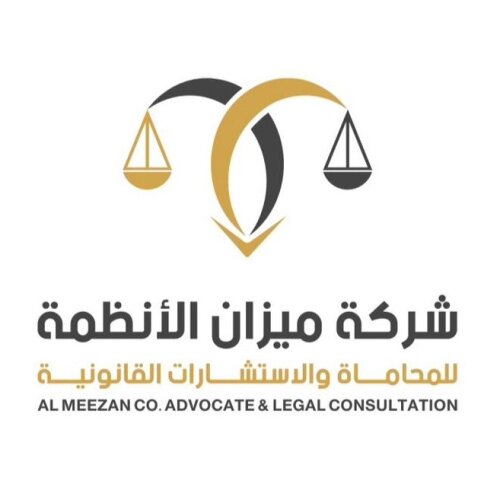Best Investment Lawyers in Makkah
Share your needs with us, get contacted by law firms.
Free. Takes 2 min.
List of the best lawyers in Makkah, Saudi Arabia
About Investment Law in Makkah, Saudi Arabia
Investment in Makkah, Saudi Arabia is governed by a framework that supports foreign investors while complying with Islamic principles. The city has seen increased interest from global investors, particularly in sectors like hospitality, retail, and construction, in light of its significance as a religious and cultural hub. The Saudi Arabian government has adopted various reforms under Vision 2030 to encourage greater foreign investment, facilitate business processes, and foster a business-friendly environment. These initiatives aim to diversify the economy and reduce the country's dependency on oil revenue.
Why You May Need a Lawyer
Individuals and businesses may require legal assistance in a variety of investment-related situations, including:
- Navigating complex legal frameworks and regulations applicable to foreign investments. - Drafting and reviewing contracts and agreements to ensure compliance with local laws. - Handling disputes with local partners, suppliers, or governmental entities. - Securing necessary permits and licenses for operating a business in Makkah. - Understanding tax obligations and incentives available to investors. - Structuring their business to optimize legal and financial outcomes within the legal framework.
Local Laws Overview
Makkah, like the rest of Saudi Arabia, is governed by a legal system that is based on Islamic law (Sharia). Key aspects of local laws related to investments include:
- The Foreign Investment Law, administered by the Ministry of Investment, outlines the rights and obligations of foreign investors. - The Saudi Arabian General Investment Authority (SAGIA) issues licenses to foreign investors and facilitates their operations. - Certain sectors may be restricted or subject to specific regulations; investors must verify sector-specific restrictions. - Makkah's strategic location and status necessitate compliance with additional municipal requirements and guidelines. - The country has established investment incentive programs, including tax exemptions and shared investment opportunities, especially for projects contributing to the country's development.
Frequently Asked Questions
What sectors are open to foreign investment in Makkah?
Most sectors are open to foreign investment, with incentives available for those aligned with Saudi Arabia's Vision 2030, such as tourism, manufacturing, and infrastructure.
How do I obtain an investment license in Makkah?
An investment license can be obtained through the Ministry of Investment, which evaluates the business plan to ensure compliance with legal standards and development goals.
Are there any restrictions on foreign ownership in Saudi Arabia?
While many restrictions have been lifted, certain strategic sectors may have foreign ownership restrictions; it is important to consult legal professionals to navigate these complexities.
What are the tax implications for foreign investors in Makkah?
Foreign entities are subject to a flat corporate tax rate; however, they may benefit from tax incentives if their investments fall into certain categories promoted by the government.
What legal structures are available for establishing a business in Makkah?
Common legal structures include Limited Liability Companies (LLC), branches of foreign companies, and partnerships. Selection depends on various factors like business objectives and ownership structure.
Can foreign investors acquire real estate in Makkah?
The acquisition of real estate by foreign investors is subject to certain restrictions, especially in holy cities like Makkah, where permissions are tightly regulated.
How can I resolve investment disputes in Makkah?
Investment disputes can be resolved through negotiation, arbitration, or through the Board of Grievances, a judicial body that handles commercial disputes.
What is the role of SAGIA in facilitating investment in Makkah?
SAGIA provides support to foreign investors by offering information, licensing services, and facilitation of government services necessary for establishing businesses.
Are there partnership opportunities with local businesses in Makkah?
Yes, the government encourages partnerships between local and foreign businesses as part of its drive to boost economic growth and diversification.
Can investment in Makkah be affected by changes in Saudi laws?
Yes, as with any jurisdiction, changes in laws and regulations can impact investments. Staying informed and consulting with legal experts ensures compliance and adaptation to new legal landscapes.
Additional Resources
Investors can benefit from resources offered by the Ministry of Investment, the Saudi Arabian General Investment Authority (SAGIA), local chambers of commerce, and legal firms specialized in Saudi investment law. These entities provide valuable insights, data, and assistance in understanding the investment landscape.
Next Steps
If you are considering investing in Makkah and need legal assistance, the first step is to consult with a lawyer experienced in Saudi Arabian investment law. They can offer tailored advice, help navigate the regulatory requirements, and provide representation if necessary. Start by researching reputable law firms in the region that specialize in investments, or seek recommendations from professional bodies or chambers of commerce. Establishing clear communication with legal counsel will ensure that your investment complies with all local laws and maximizes its potential.
Lawzana helps you find the best lawyers and law firms in Makkah through a curated and pre-screened list of qualified legal professionals. Our platform offers rankings and detailed profiles of attorneys and law firms, allowing you to compare based on practice areas, including Investment, experience, and client feedback.
Each profile includes a description of the firm's areas of practice, client reviews, team members and partners, year of establishment, spoken languages, office locations, contact information, social media presence, and any published articles or resources. Most firms on our platform speak English and are experienced in both local and international legal matters.
Get a quote from top-rated law firms in Makkah, Saudi Arabia — quickly, securely, and without unnecessary hassle.
Disclaimer:
The information provided on this page is for general informational purposes only and does not constitute legal advice. While we strive to ensure the accuracy and relevance of the content, legal information may change over time, and interpretations of the law can vary. You should always consult with a qualified legal professional for advice specific to your situation.
We disclaim all liability for actions taken or not taken based on the content of this page. If you believe any information is incorrect or outdated, please contact us, and we will review and update it where appropriate.












